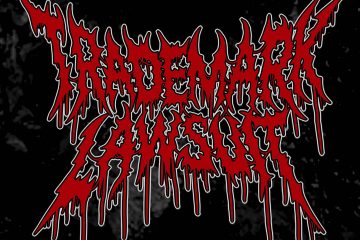What’s This All About?: As a new attorney with a background as a performing musician (mostly in my younger days), I can recall well, but not too fondly, the process of handling the “business side” of the bands I played with over the years. Bands can easily walk head-on into a number of pitfalls when they simply “show up and blow up” as the evening’s entertainment at any of your favorite local watering holes. I’ll address a handful of these, using a personal example as a template for “what not to do.”
The Halloween Gig: We booked a gig for our 80’s rock and metal cover band at a popular sports bar in Chesterfield County, Virginia. Over the phone, one member of our band discussed the date, time, length of performance, and most importantly, the payment terms. It was a Halloween show, with a guarantee of One Thousand Dollars ($1,000.00) to be paid in cash at the end of the night. Perfectly normal operation, nothing out of the ordinary, and we had played the venue before without issue. Weeks before we even performed, we relied on the club’s representations and entered into separate (likely verbal) agreements with a sound guy, and a lights guy. There went $500 of our guarantee right out the gate. No worries, that still leaves a hundred bucks a man for our five-piece outfit, or so we thought.
Fast forward to the night of the gig. Place is packed, girls and guys are in costumes, drinks are flowing, and we perform for roughly three or four hours. Show concludes, last call is announced, and the bar empties. We load up our gear, and then comes the pivotal moment: seeing the manager for our pay. That’s when it happened.
“Well, we are only going to give you Nine Hundred Dollars ($900.00).” What? I was young, confused, and angry. Here we had provided a full night of entertainment, we had “performed” as that term is commonly used and as it’s used in the world of contract law, and the bar wanted to stiff us a hundred bucks? No way dude—we nailed Still of the Night by Whitesnake; that alone is worth a grand!
After a bit of hemming and hawing on my part, our drummer convinced me not to make a stink of it, because we wouldn’t get booked there in the future if we made a fuss. “Who wants to play for a club that doesn’t honor its promises?” I thought. We ended up just letting it go, and each us took home $80 instead of the $100 apiece we expected, but I never forgot that lesson.
Pitfall #1: Not having a well-drafted, enforceable contract. As was often the case for me (and I presume as is often the case for many performing bands in and around Henrico, Virginia), our gigs were booked based on either a handshake agreement or by a simple phone call or exchange of e-mails between bands and club owners. Most of the time, this works out fine, and bands and bars work hard to figure out the details on the night-of. Nothing wrong with that, but there is a better approach.
With a Performance Contract, you can lay out all the particulars for the show you have booked. You can state, with specificity and with the force and effect of law, all the binding elements of the bargain you strike with the venues you work with. These can include date, time, length of performance, who provides P.A., who provides lights, who operates the said P.A. and lights, how is payment tendered, to whom is it tendered, who is the check made out to, and who (if anyone) gets the 1099 or other tax form from the bar, if they prepare one.
Your contract can also say what happens if things go wrong. What if the band can’t perform due to illness or injury? What if the bar gets flooded and the show can’t go on? Planning for contingencies and having a provision on attorney’s fees if you have to sue to collect payment is almost never the first thing on a rocker’s mind when an opportunity to play comes up, but it should be something you plan for, just in case. That’s where an attorney can help.
Pitfall #2: Not having a legal entity formed for our band. Though a lot of smaller gigs are going to pay cash, some will no doubt be paid by check or other means, and in that case, the bar owner or booking agent needs to be able to make out the payment to someone. Without a legal entity that can make and receive payments, you run the risk of having one member do the lion’s share of receiving payment, and that can mean that she or he is on the hook for a tax burden that is only partially hers.
You can form a number of legal entities for your group under Virginia Law, and consulting with an attorney to decide how to go about doing that is never a bad idea, especially once some money starts to flow one way or the other.
Having a legal entity may also protect the band members individually from liability. In my example above, what if the bar that stiffed us had decided to cancel the gig altogether on the very day of, and even though our band was not getting paid a penny, the light and sound guys showed up anyway, after having spent an afternoon loading their gear? They would understandably expect payment from someone, and they might sue whoever asked them to provide services, i.e., us.
By forming and seeking shelter in a legal entity by contracting in the name of your LLC, for example, you may be able to insulate yourselves from some liability. My example is one of a low-rent cover band that played mostly dive bars, but what if your band has a wedding gig for five or ten grand and has to back out when your singer quits or gets pneumonia? These are contingencies you want to be prepared for and protected from.
These concepts apply equally to those who hire bands: If you are a bar owner or booking agent who hires bands to play, you likewise need to protect your interests the same way bands do. If a band backs out last minute, what protection do you have? What damages can you seek if you have to cancel what would have otherwise been a lucrative show, and how do you collect? How do you pay your staff? Your crew?
It doesn’t hurt to have a handy agreement that you can tailor to each of the gigs you book, and it doesn’t hurt to have a proper legal entity formed for your band, especially if it’s generating some income. If you want to know more or are considering having a contract prepared, E-mail me, Call me at (804) 250-8911 or fill out the form available here.
TL; DR IF YOU ARE IN A PERFORMING BAND OR YOU BOOK BANDS, YOU SHOULD HAVE A WRITTEN CONTRACT TO PROTECT YOUR INTERESTS



0 Comments